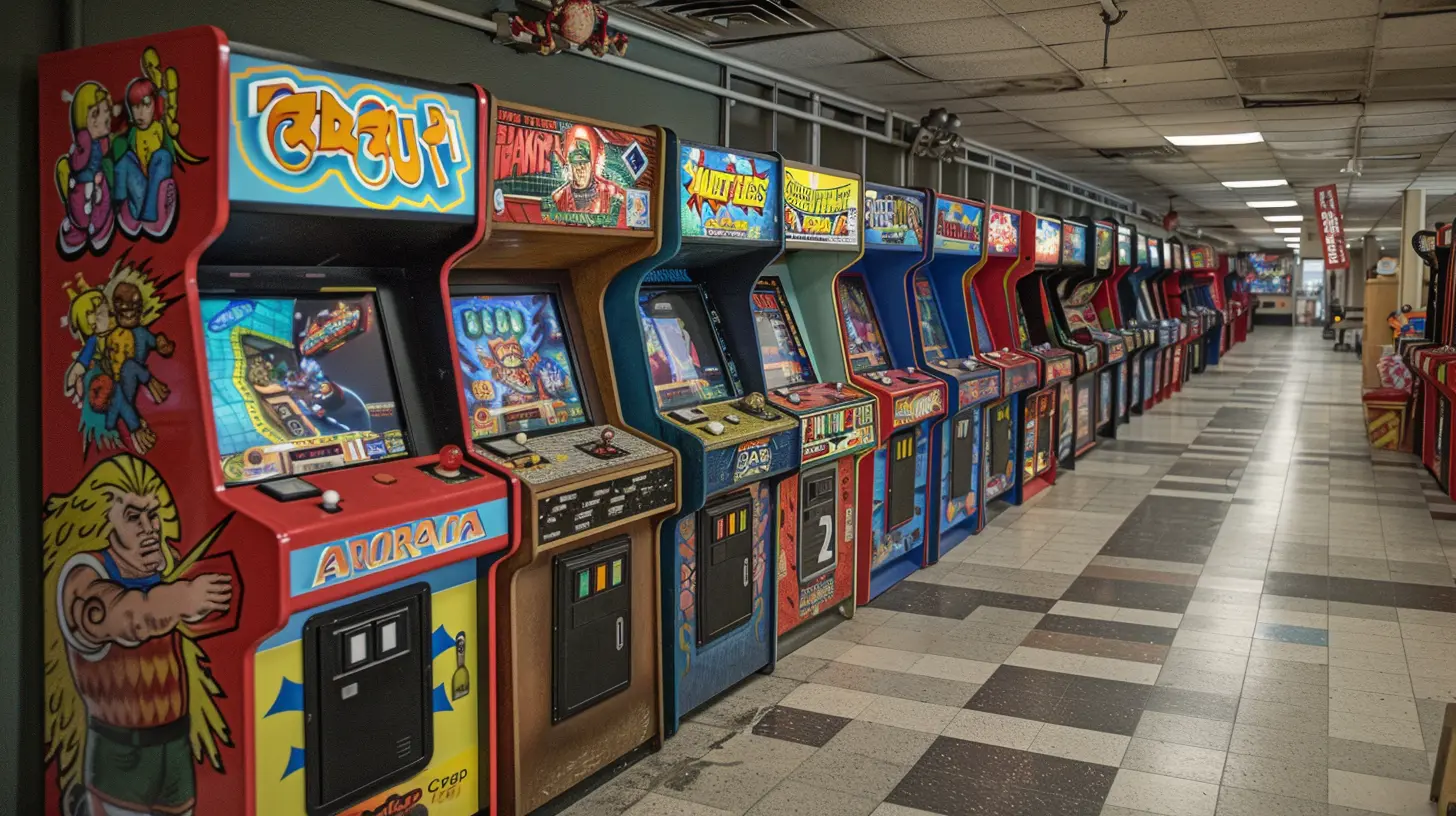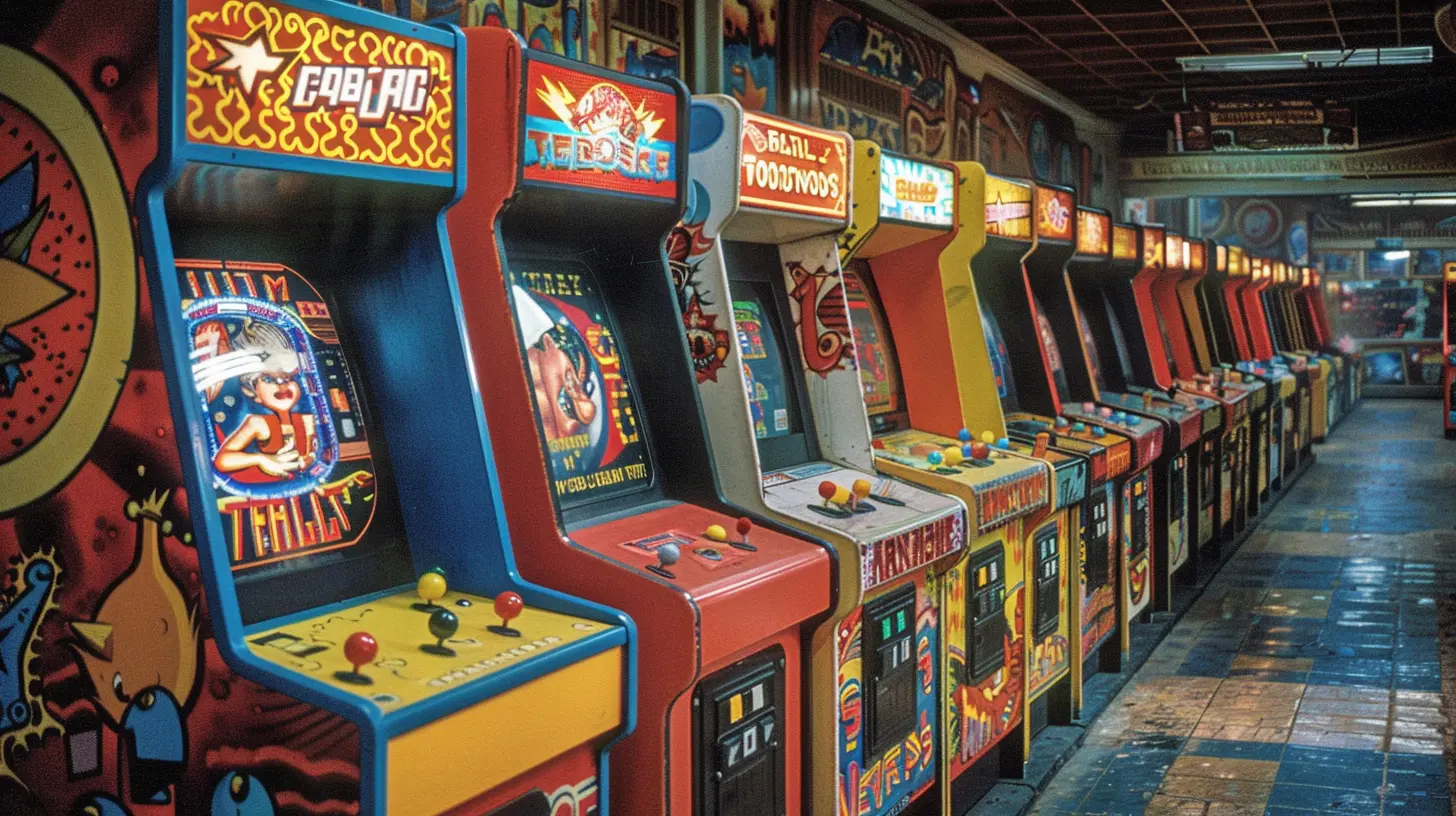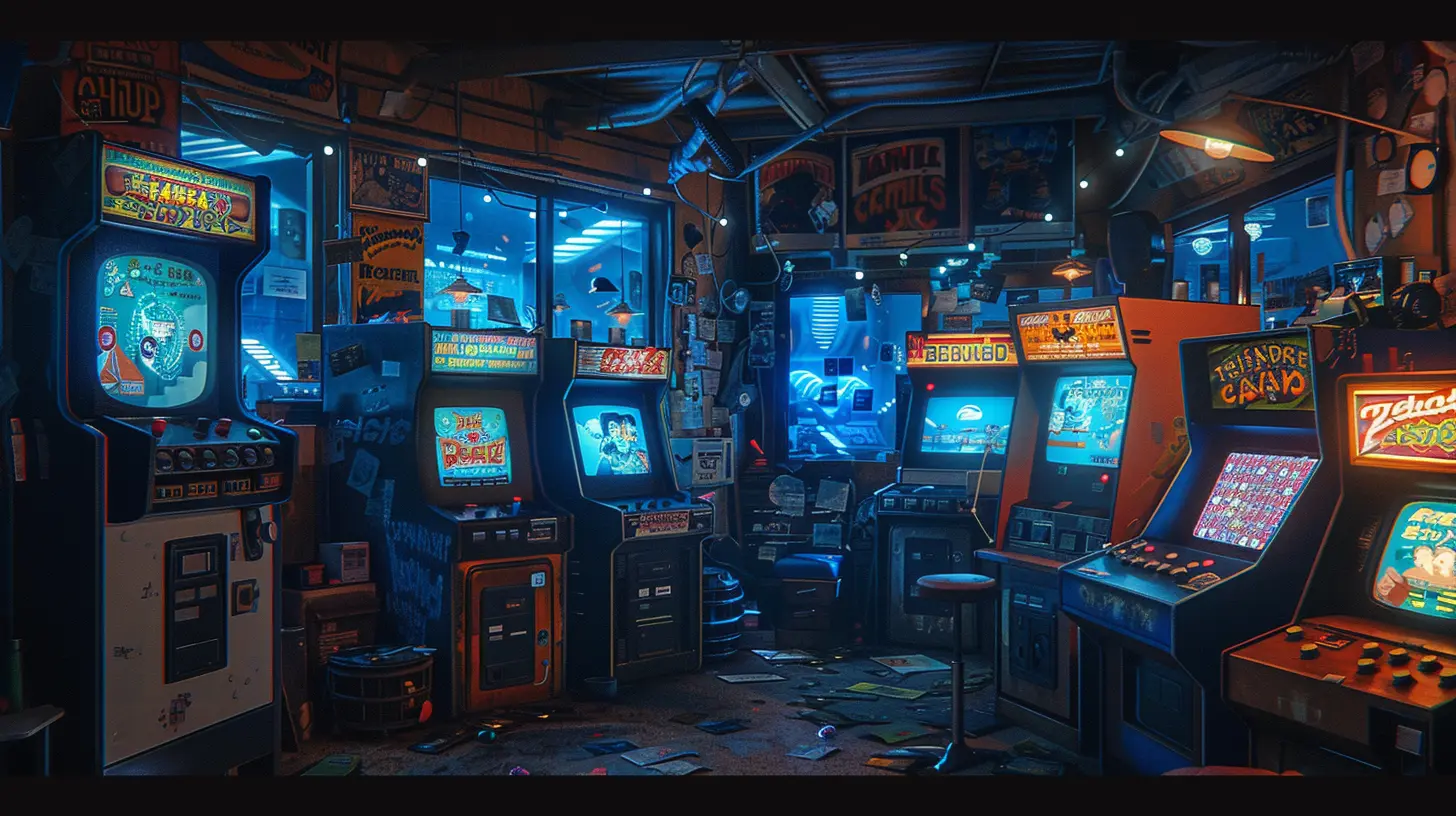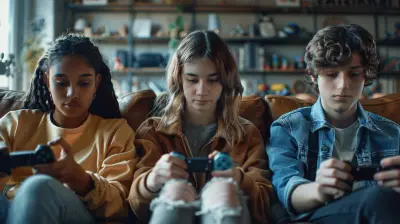How Arcade Games Taught Us to Never Give Up
16 October 2025
Let’s rewind a bit. Picture this: it's the 80s or 90s, and you’re standing in front of a colorful, flashing arcade cabinet. The theme music is blasting, your palms are sweaty, and your pockets are jingling with quarters. One life left, one final level, and your eyes are glued to the screen like it’s the final showdown of your life.
There was no saving your progress. No checkpoints. No YouTube tutorials. Just you, the joystick, and pure grit. Sound familiar? Well, you're not alone.
Arcade games were more than just pixelated fun. They were digital boot camps in disguise—teaching us the art of resilience, one game over at a time. Believe it or not, these coin-operated giants had a profound impact on the way we handle failure, success, and everything in between.
So buckle up, because we’re diving deep into how arcade games taught us to never give up.
The Glory Days of Arcade Gaming
Before consoles took over our living rooms and mobile games invaded our pockets, arcades were the go-to spot. Picture rows of machines lined up like soldiers, each whispering (or shouting), “I dare you to beat me.”From Pac-Man and Donkey Kong to Street Fighter and NBA Jam, every arcade game came with a single promise: It’s going to be hard. Really hard.
There was no difficulty slider. You couldn’t switch to “easy mode.” You had to get good. And getting good took time, effort, and an absurd number of quarters.
Why Did We Keep Playing, Though?
Because those games had something special—something that hooked us and never let go. The mechanics were simple, but the challenge was intense. And that challenge turned into obsession.You'd say, “Just one more try,” and before you knew it, your allowance was gone, and you were begging your mom for more change. But you didn’t quit. You came back the next day with a game plan.
Failure didn’t stop you. It motivated you.
Failing Fast, Learning Faster
Arcade games had no chill. They threw you into the fire with barely any instructions. Mess up? Boom! Game over.But here’s the thing: failure was baked into the experience. You learned by losing. Over and over. And every time you died, it was a lesson.
- Didn't time that jump in Donkey Kong? Try again.
- Got wrecked by Guile in Street Fighter? Learn his patterns.
- Missed the last ghost in Pac-Man? Regroup and go for the high score next time.
Each death wasn't an ending—it was feedback. Quick, brutal feedback that helped you improve in real time.
The “Insert Coin to Continue” Mentality
There’s something poetic about this, right?You fail. The screen flashes “GAME OVER.” And then, without missing a beat, it says: “INSERT COIN TO CONTINUE.”
That simple prompt? That was the arcade’s way of saying, “Don’t stop now. You’re close. You just need one more push.”
It was more than just a literal call to action. It mirrored life. When things get tough, we can either quit—or we can “insert another coin” and keep trying.
The Power of Perseverance in Pixels
Arcade games demanded perseverance. They didn’t hold your hand. They beat you down and then dared you to stand up again.You weren’t just fighting pixels on a screen—you were fighting yourself. Your doubts. Your frustration. Your urge to quit.
And when you finally cleared that level or topped the leaderboard? Oh man, it felt like conquering Everest.
Mastery Through Repetition
Arcade games turned us into perfectionists. You had to memorize enemy patterns, develop split-second reflexes, and execute flawless techniques.Whether it was perfectly timing your jumps in Frogger or pulling off a Hadouken in Street Fighter, it all came down to practice. Relentless, obsessive, sometimes frustrating practice.
But guess what? That’s how real-life mastery works, too. You don’t just get good at something overnight. You grind. You repeat. You fail. And then—eventually—you get it right.
Competition Fuels Persistence
Let’s not forget the whole “high score” phenomenon. Those neon-lit letters and numbers on the leaderboard weren’t just symbols—they were status. Your initials on that screen meant you were the best. At least until someone else knocked you down.Remember standing behind someone as they played, watching their score inch closer to yours? That primal mix of anxiety and excitement—that’s what kept us in the game.
Friendly Rivalries, Fierce Motivations
Your friends became your rivals. Your rivals became your motivation. And the machine? It was the ultimate referee.Arcade games created a space where you could prove yourself. Not with words, but with skill. And if someone beat your score? Oh, you bet you were coming back harder, faster, better.
That's the beauty of competition—it pushes us to do more than we thought we could.
Real-Life Lessons Hidden in Low-Res Graphics
It’s easy to think of arcade games as just childhood nostalgia, but they packed serious life lessons into those tiny screens.1. Failure is not the end.
Every game over was a chance to start again. It taught us that messing up is part of the journey.
2. Practice makes progress.
No one was a Galaga god on day one. Improvement came from consistent effort.
3. Stay cool under pressure.
That final boss battle with a crowd watching? Talk about nerves. You learned to stay focused, even when the stakes felt high.
4. Every second counts.
Timed levels, countdowns, and limited lives taught us to think fast and act decisively.
5. Persistence beats talent.
You didn’t have to be a natural. You just had to be determined.
How These Lessons Translate to Adult Life
It’s funny how our biggest adult struggles mirror the challenges in arcade games.- Feeling like you’re failing at work? Think of it as another boss level.
- Trying to pick up a new skill? Remember how long it took to beat that impossible stage in Contra.
- Facing setbacks in your relationships or goals? Insert another coin.
Arcade games wired us for resilience. They taught us that setbacks are temporary, effort pays off, and that a comeback is always possible.
Arcade Mentality in the Modern World
Even though we’ve moved on to open-world games and battle royales, that arcade spirit lives on.Next time you’re dealing with a challenge, ask yourself: “What would 12-year-old me do in front of that arcade cabinet?”
Answer: You’d try again.
Because you didn’t come this far to give up.
The Joy of the Journey (Not Just the Win)
Let’s be real here: most of us never actually beat the hardest arcade games. Some of them felt downright impossible. But we kept playing anyway. Why?Because it wasn't just about finishing. It was about the thrill of the chase, the satisfaction of getting a little better each time, and the stories we made along the way.
Remember that time you cleared four levels with one life left? Or when your friend landed that perfect combo out of nowhere?
Those moments mattered. They were mini triumphs. Proof we were growing—even if we didn’t realize it at the time.
And honestly, isn't life kind of the same?
Arcades May Be Fading, But Their Lessons Live On
Sure, most arcades have shut their doors, and those coin-op behemoths are harder to find these days. But the mindset they gave us? That’s forever.The never-give-up attitude. The willingness to fail repeatedly until we figure it out. The joy of trying, not just winning.
In many ways, arcade games were more than just entertainment. They were training grounds for life. Wrapped in neon lights and 8-bit beats, they quietly whispered the same message over and over:
“Fall down seven times, get up eight.”
Final Thoughts: Keep Pressing Start
Arcade games weren’t easy. They weren’t forgiving. But man, they were worth it.They didn't just pass the time—they shaped mindsets. They taught us that persistence beats perfection. That challenge isn’t an enemy—it’s a teacher. And most importantly, that no matter how many times you get knocked down…
…you can always press “start” again.
So here’s to the arcade fighters, the high-score chasers, the joystick warriors. You didn’t just play games.
You learned how to never give up.
all images in this post were generated using AI tools
Category:
Arcade GamesAuthor:

Francesca West
Discussion
rate this article
1 comments
Zevin Morrow
Great article! It’s inspiring to see how arcade games foster resilience and perseverance in life.
October 17, 2025 at 3:20 PM

Francesca West
Thank you! I'm glad you found it inspiring—arcade games really do teach valuable life lessons!


